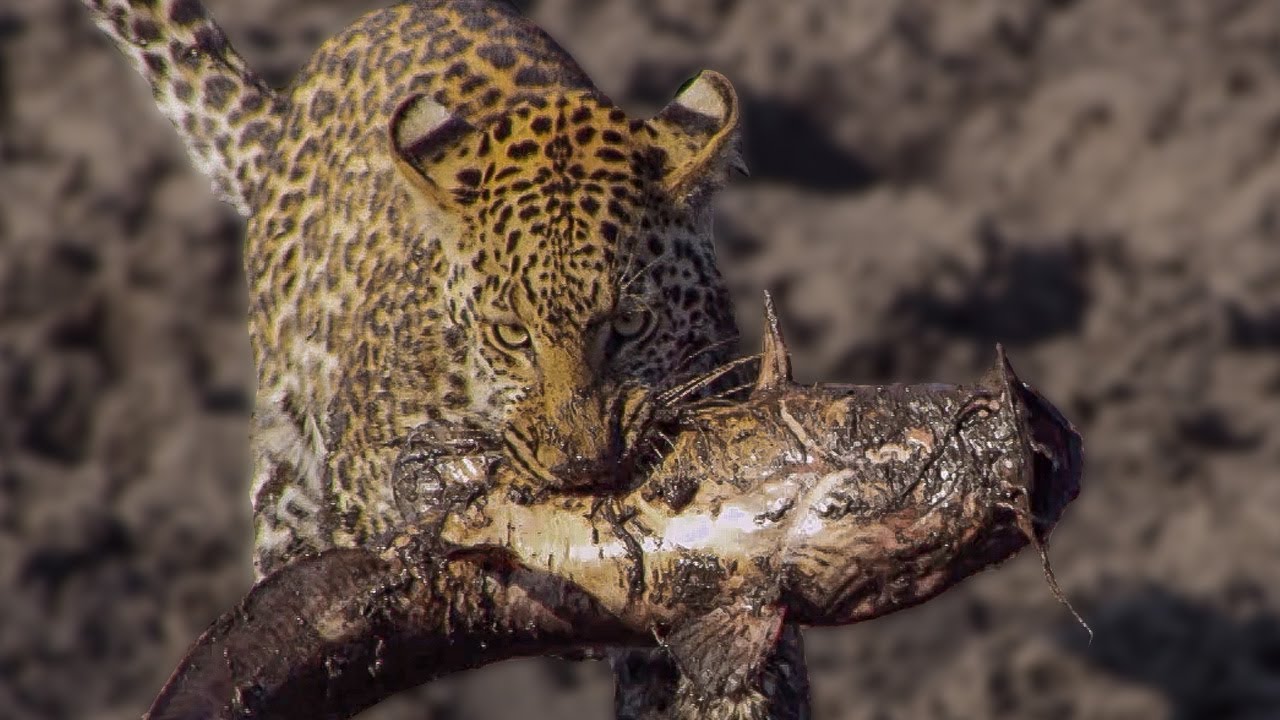Leopards learn how to Catch Catfish

A leopard and her two cubs are looking for food among harsh conditions and strict competition.
Hidden in the mud is a free lunch of catfish. So in order to eat, they must learn how to fish.
What further research could be conducted to better understand the adaptive and flexible behaviors of leopards and other predators in changing environments?
Leopards are widely known for their ability to hunt prey in the wild, but recent studies have shown that they are also capable of adapting to new and unconventional hunting techniques. Surprisingly, researchers have observed that leopards in Gabon have started to catch catfish from streams and ponds.
The study was conducted by a group of researchers from the University of St Andrews in Scotland, the Wildlife Conservation Society, and the Environment and Rural Development Foundation. The researchers spent 14 months in Ivindo National Park in Gabon, studying the hunting behaviors of leopards. During the study, they discovered that the leopards were catching catfish by diving into the water and catching them with their teeth.
This observation is particularly interesting because it challenges the long-held belief that leopards are solely land predators. The researchers also discovered that the leopards were more successful in catching fish during the rainy season, which suggests that they have learned to adapt to the shifting water levels.
Interestingly, the researchers found that the leopards were not the only ones catching fish in the streams and ponds. Other predators like chimpanzees, otters, and birds were also observed catching fish, but the leopards were the only ones using this technique consistently.
This finding demonstrates the flexibility and intelligence of leopards as a species. Leopards are known for their adaptability, and this study adds another layer to this ability. As habitats continue to change due to climate change and human encroachment, it is essential for animals to adapt to new environments and food sources.
The study also raises the question of whether leopards have acquired this skill through trial and error or if it has been passed down from generation to generation. Nevertheless, it is a remarkable feat for a predator that is typically associated with the savannahs and forests in Africa and Asia.
In conclusion, this study highlights the importance of studying animal behavior and their adaptation to changing environments. The discovery of leopards catching catfish in Gabon challenges our understanding of animal behavior and suggests that more research must be done to uncover the extent of their adaptability. It is crucial to further study this behavior as it could have direct implications for the conservation of species that rely on fish as their primary food source.









I Attempted the Air Force Special Warfare PAST Test (without practice)
BIG FAMILY RV TOUR : HOW WE LIVE IN OUR RV FULLTIME W/9 KIDS!!!
Man shares apartment with family of huge owls
Secret Service Most Wanted Man Explains How He Swindled Millions from Banks
The Reason Why Kangaroo Abandons Its Baby to Predators